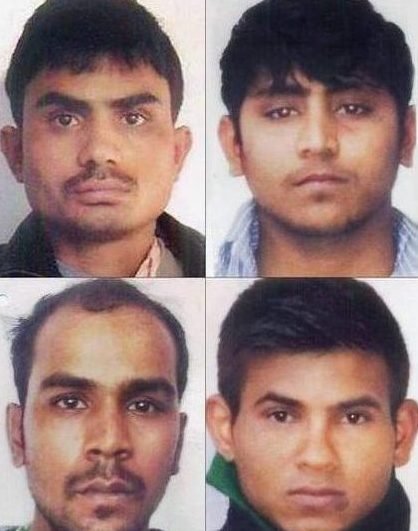Nirbhaya case: women’s rights groups write to the President to say “death penalty not a deterrent against crimes”
Sixteen organisations and more than 350 persons working for women’s rights have urged President Ram Nath Kovind to stop the execution of the four convicts in the Nirbhaya case, the brutal gangrape and murder that sent shockwaves across the country in 2012.
The time of hanging had been fixed at 7 am on January 22 at Tihar Jail. The four convicts on death row are Pawan Gupta, Mukesh Singh, Akshay Singh and Vinay Sharma. However, the mercy petition of Mukesh Singh is pending before the President at the moment, and according to the Delhi government, the four are not likely to be hanged before the matter is cleared by him.
“We understand the inexorable pain of the parents and other loved ones of women and children who are raped and, in many cases, killed… However, efforts by politicians and parties, courts and other vested interests to capitalise on their pain and make the case a matter of the nation’s honour give false hope that the harshest punishment of death will prevent all such cases in the future,” the letter reads.
Among others, it was signed by lawyer Indira Jaising, scholar Nivedita Menon, filmmaker Anand Patwardhan and historian Uma Chakravarti. Among the reasons cited was that punishment was “not a deterrent against crimes” adding studies from across the world. It was also said that there was “no shortcut to justice and safety” and need to focus on long term social change. It was also the failure of authorities to ensure security to women that is required.
The signatories said they were “anti-punishment”, and “pro-justice”. The letter also said: “There is a need to understand the pervasiveness of this kind of violence on women and evolve punishments that act as true deterrents to the very large numbers of men who commit, and get away with, such crimes.”
Majority of sexual crimes are committed by family members or people known to the women and reports of such crimes were abysmally low, they added in the letter. They signatories also said in the letter that irrespective of the nature of the crime, “every human being has an inalienable right to life” and had the potential for reform, provided the state and the society commit themselves to it.
“There is no quick answer to stopping sexual crimes,” they said. “We need to walk together on the long and complicated path to dismantling patriarchal and caste/community-based privilege, impunity and power, and the pervasive misogyny based in customs, tradition, law, the courts, government and society.”
Six persons were arrested and charged with rape and murder of a 23-year-old medical student in Delhi in 2012, which came to be known as the Nirbhaya case. One of the accused was a minor and was tried in the juvenile justice court. Another accused – Ram Singh – had committed suicide in Tihar Jail.
The Supreme Court has already dismissed the curative petitions of two of the four convicted in the case. This was their last possible legal appeal against the death sentence. A Delhi court had on January 7 issued the death warrant against the four death row convicts. Later, one of them, Mukesh Singh, has appealed to the President against the death sentence.


Comments are closed.